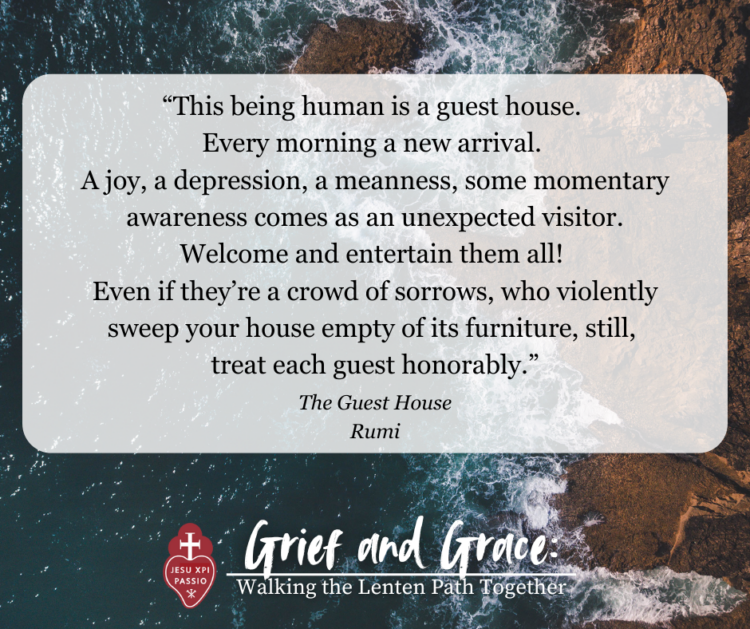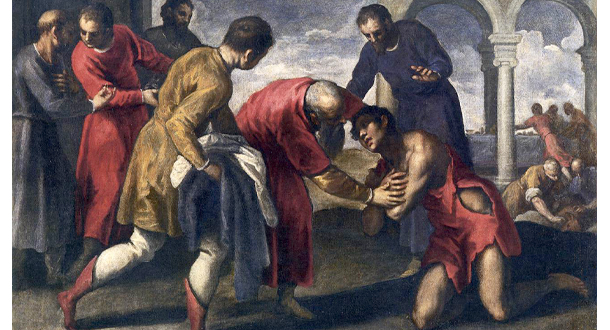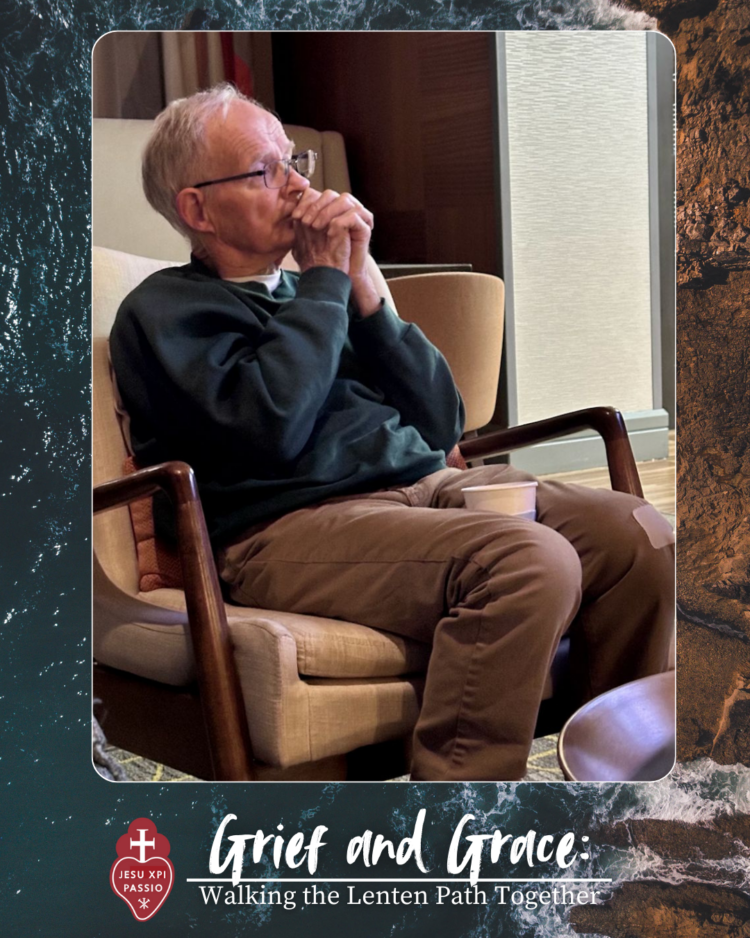Saturday of the Second Week of Lent

Daily Scripture, March 22, 2025

Scripture:
Micah 7:14-15, 18-20
Luke 15:1-3, 11-32
Reflection:
The parable of the prodigal son is so familiar a story that it is understandably tempting to automatically tune out, as in heard that story, know that story, end of story. The most common interpretation of this parable is the allegorical application. The prodigal son represents the sinners with whom Jesus was eating. The older brother represents the scribes and Pharisees who resented the unsavory company Jesus kept. The father represents God receiving those sinners who return to him.
During this Lenten season, however, perhaps a more meaningful approach to this parable may be one in which we examine relationships – with one another, and with God.
The prodigal son
Did the prodigal son make sinfully wrong choices? Yes. In his actions, this son abused and breached his relationship with his father. He demanded his inheritance early. He insisted on taking full control of his own life. He rebelled against his father. The son effectively rudely, thoughtlessly, and hurtfully shoved his father aside. The son departed to a “distant country” and consequently became lost, not because he did not know the way home, but because he had wasted his father’s gift, the gift of his relationship with his father. He was found only when he “came to his senses” and returned to his waiting father to seek forgiveness and reconciliation – that is, when he returned to the embrace of his father’s loving relationship.
The father
A key point in this relationship is that the father waited, no ran to his returning son, aching and rushing to reestablish their relationship. The father neither chastises nor punishes his son. Instead, he lavishly, wastefully, extravagantly, prodigally, had him dressed for a huge welcome home party.
The elder son
By contrast, the older, self-righteous brother is relationally alienated from both his brother and his father. Notice the words “this son of yours.” The elder brother refused the father cajoling and begging that he rejoice in his brother’s return. Instead, he angrily rejected any relationship with his younger brother. The gospel writer, Luke, challenges us to reflect on who is the truly lost brother, who is the one missing in a far country.
And us…
Can we see ourselves in each of these brothers? At times, are we not the ones lost in sin, alienated from God the father, yet to accept God’s extravagant gift of grace, to come to our senses, to repent, to return to a loving relationship with him? And at times, sadly, do we not fall into the behavior of the elder brother, righteously smug in our faith and in our literal obedience to God’s commands, that we lose our compassion, our understanding, and forgiveness of others. We lose the loving relationship God desires us to have for one another.
…During this Lenten season
And during this Lenten season, can we see God the father? He is the one who gives us the freedom to choose him or reject him, but who waits patiently, ready to embrace us in welcome, ready to shamelessly cajole and beg us to love and forgive one another. Why? Because, in God, we are called to have an extravagant, prodigious loving relationship with one another as brothers and sisters – you know, the kind of relationship he has for us.
Deacon Manuel Valencia is on the staff at Mater Dolorosa Passionist Retreat Center, Sierra Madre, California.
Friday of the Second Week of Lent
Daily Scripture, March 21, 2025

Scripture:
Genesis 37:3-4, 12-13a, 17b-28a
Matthew 21: 33-43,45-46
Reflection:
For so many years, Lent was a time for giving up things such as dessert, going to movies, etc. The focus was on giving up something that I liked instead of doing something hard such as working on my faults. In today’s first reading, Joseph’s brothers were so spiritually dead that they could not even greet him or be kind to him. Considering the behavior of Joseph’s brothers should enable us to examine the difficult things about ourselves. Lent is a time for us to take the pulse of our spiritual life. If there are no daily efforts to foster a spiritual life, or we refuse to speak or be kind and loving to others then we must consider that our spiritual life could be dead (spiritual arrest) or non-existent.
How do I spiritually resuscitate myself? To foster spiritual self-renewal, we should engage in spiritual life-giving practices like daily prayer, daily meditation, scripture study, and acts of service; seek forgiveness and cultivate gratitude; and find time for reflection, solitude, and connection with nature or others. (Adapted from Self-Renewal on Google). It is important to have time set aside for daily spiritual activities. It is advantageous to designate a specific area in one’s home that is quiet, free from noise, and conducive to silence, reflection, and prayer. A healthy spiritual life requires daily attention through spiritual practices.
Lord, may I have the strength to engage in daily spiritual renewal activities, allowing me to grow closer to you, my loved ones, and everyone I encounter.
Carl Middleton is a theologian/ethicist and a member of the Passionist Family.
Thursday of the Second Week of Lent
As I sat and pondered the fires [in Sierra Madre], I remembered the major fire of 1952 that devastated this very same property. I remembered the hard work and determination of the community at the time and the grandson of the builder of our Monastery (1930s), who helped with the rebuilding. Slowly, I found myself in an atmosphere of gratitude and optimism and hope.
~Br. John Rockenbach, C.P.

Daily Scripture, March 20, 2025

Scripture:
Reflection:
Welcome: “Soft Hearts,” Sincerely Abraham
Not too long ago, at a school in the Detroit area, a faculty member proposed that the adults in the school community each select a student and write a personal letter telling what they appreciate as special about the student. There were 50 students who were singled out for such gifts as leadership, kindness, generosity, attention to other students. I heard praise both for the gifts of the students as well as how they shared their gifts. Before handing the letter to the student, we heard some of the letters being read. The letters were not finished before each child covered his or her face and cried, some sobbed. I cried too.
At the passing of our unnamed ‘rich man’ it seems not many people cried, ‘he was buried’. The parable doesn’t elicit tears. Sadly, there is no alternative ending. A petrified heart finds no place in Abraham’s bosom, and bad news continues for the five brothers.
Remember the children! The rich man had a lot of wealth with which he could have done good. The children have their children size gifts. We have ours. No matter, a small store of riches can be just as absorbing and blind us to the poor at our gate. The children were singled out because they shared what they had. Their gifts benefited others.
Why did they cry? Could it be those tears originated in the heart? In some way that none of us can explain their goodness was exposed; a goodness that reached out to many untold sufferings. Could their little gifts of kindness, help, or encouragement to a classmate alleviate some suffering. In their humble, small way sufferings were eased by their gift, but their gift brought them into contact with a bit of suffering. Maybe they do not understand this, nor could they articulate such a mystery. But what they did their hearts knew and their hearts overflowed with tears when it was named. These are the hearts that Abraham embraces in his bosom; hearts growing to the size of the love of God’s heart for us.
Would it have helped if someone wrote a letter to our rich man? Well, Moses and the prophets seem to have one this. But if we notice a friend or classmate whose heart needs some attention, it could well be that we also have a gift to speak a word to the weary. Sad, no one spoke to the rich man. Could he have been helped?
The Lenten days remind us that we are given a great gift, beyond our stored-up treasures. God gives us a sign in the resurrection from the dead that we are called t share a risen life. Life beyond this life is our destiny. We glimpsed this with the apostles Sunday. There are innumerable moments of resurrection – a peaceful death, a birth, an act of love, our boundless world of nature. These moments shout and can awaken in us, something that helps us know there is a resurrection of our humble mortal bodies. Let us celebrate them, look for them and share this gift with others.
Do not deny your gifts, use them. Affirm, awaken and encourage them in others. And in the Lenten days share the moments of resurrection that reveal the gift to come.
Fr. William Murphy, CP is a member of Immaculate Conception Community in Jamaica, New York.
Wednesday of the Second Week of Lent

